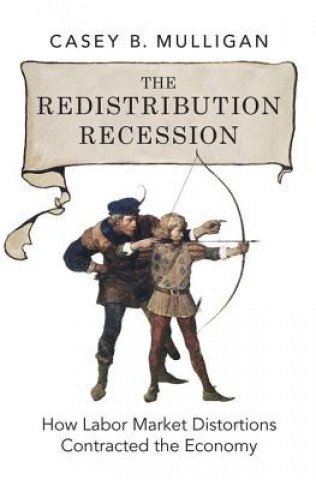
Kód: 04536926
Redistribution Recession
Autor Casey Mulligan
Since 2007, many fundamental aspects of the economy and the labor market have changed dramatically. With the exception of Medicaid, subsidies flowing to the unemployed and financially distressed households in the forms of loan for ... celý popis
- Jazyk:
 Angličtina
Angličtina - Vazba: Pevná
- Počet stran: 368
Nakladatelství: OUP USA, 2013
- Více informací o knize

Mohlo by se vám také líbit
-

Western Sanitary Commission; A Sketch of Its origin, History, Labors For the Sick and Wounded of the Western Armies, and Aid Given to Freedmen and Uni
636 Kč -

Holy Ignorance
1578 Kč -

City at Its Limits
1023 Kč -

Advances in Services Marketing and Management
4679 Kč -

Python Programming Language
1698 Kč -

Dictionary of Literary Biography, Vol 308
17925 Kč -

Prayers for a Planetary Pilgrim
567 Kč
Dárkový poukaz: Radost zaručena
- Darujte poukaz v libovolné hodnotě a my se postaráme o zbytek.
- Poukaz se vztahuje na celou naši nabídku.
- Elektronický poukaz vytisknete z e-mailu a můžete ihned darovat.
- Platnost poukazu je 12 měsíců od data vystavení.
Více informací o knize Redistribution Recession
Nákupem získáte 256 bodů
 Anotace knihy
Anotace knihy
Since 2007, many fundamental aspects of the economy and the labor market have changed dramatically. With the exception of Medicaid, subsidies flowing to the unemployed and financially distressed households in the forms of loan forgiveness and government transfers almost tripled. The generosity of mean-tested subsidies like food stamps, and employment-tested subsidies like unemployment insurance have steadily increased. Congress considered legislation that would raise marginal income tax rates, and would present Americans with new health benefits that would be phased out as a function of income. Also, a large number of homeowners owed more on their mortgages than their houses were worth, and many in both the private and public sectors renegotiated their mortgage contracts. And many others renegotiated business debts, consumer loans, student loans, and tax debts. Labor economist Casey B. Mulligan argues that because the way these trends have affected the labor market, they deepened, if not caused, the recession. He explains how progressive tax rates and binding minimum-wage laws reduce labor usage, consumption, and investment, and how they increase labor productivity. This means that while a small part of the population actually works more, overall hours worked in the whole economy are less. He explains and examines the pratical ways that for many people during a recession it costs more to earn more, and how people are working less because of it. One newly discovered aspect of the costs on earning is the large portion of the labor force renegotiating debt. Mulligan quantifies how borrowers can expect their earnings to affect the amount that lenders will forgive in debt renegotiation, and how this has acted as a massive implicit tax on earning. He also measures the changes in market tax rates that resulted directly from "social safety net" programs, and quantifies these changes' effects on the labor market and the economy. Mulligan argues that much of the decline in labor usage since 2007 was a reaction to the combination of higher marginal tax rates and a higher federal minimum wage, and that it is important to understand why labor market distortions like these suddenly increased, and to what degree those increases were caused by the various measures enacted to boost the labor market. The Redistribution Recession is a controversial, clear-cut, and thoroughly researched analysis of the effects of various government policies on the labor market during the recent recession.
 Parametry knihy
Parametry knihy
Zařazení knihy Knihy v angličtině Economics, finance, business & management Economics Labour economics
2561 Kč
- Plný název: Redistribution Recession
- Autor: Casey Mulligan
- Jazyk:
 Angličtina
Angličtina - Vazba: Pevná
- Počet stran: 368
- EAN: 9780199942213
- ISBN: 0199942218
- ID: 04536926
- Nakladatelství: OUP USA
- Hmotnost: 756 g
- Rozměry: 242 × 160 × 21 mm
- Datum vydání: 31. January 2013
Oblíbené z jiného soudku
-

Shutdown in Youngstown
3243 Kč -

Sharing Economy
553 Kč -

Sharing Economy
683 Kč -

Reflective Practitioner
1035 Kč -

Out of Poverty
1013 Kč -
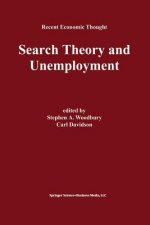
Search Theory and Unemployment
3289 Kč -

Love, Money, and Parenting
773 Kč -

Coming Jobs War
701 Kč -

New Division of Labor
989 Kč -

Workers of the World
2430 Kč -

Hired
276 Kč -

Wealth of Humans
437 Kč -
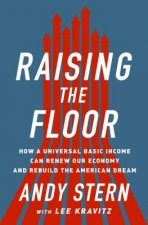
Raising the Floor
699 Kč -

Reflective Practitioner
1238 Kč -
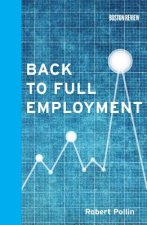
Back to Full Employment
255 Kč -

Industrial Relations in Japan
4949 Kč -

Discrimination in Labor Markets
1023 Kč -

Inequality in America
868 Kč -

Once and Future Worker
615 Kč -

Debating Universal Basic Income
1370 Kč -

Shop Class as Soulcraft
662 Kč -

Humans as a Service
698 Kč -

e-Government and Employment Services
1665 Kč -

Manufacturing Advantage
1256 Kč -
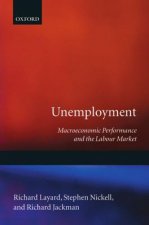
Unemployment
2118 Kč -
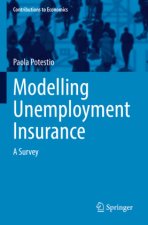
Modelling Unemployment Insurance
3584 Kč -

Economics of Imperfect Labor Markets
1884 Kč -

Social Production of Art 2/E Pb
966 Kč -

Unemployment
7539 Kč -

Mass Flourishing
799 Kč -

Intersectionality and Discrimination
1576 Kč -

Working with the Grain
5442 Kč -

Combatting Unemployment
3267 Kč -

Economics of Unemployment (Routledge Revivals)
1429 Kč -

Jobs, Earnings, and Employment Growth Policies in the United States
1665 Kč -

Impact of Networks on Unemployment
1665 Kč -

Social Change and the Experience of Unemployment
2278 Kč -

Humans as a Service
1247 Kč -

Global Gag Rule and Women's Reproductive Health
1256 Kč -

Behind the Urals
621 Kč -

Unequal Pay for Women and Men
315 Kč -

Unemployment
3542 Kč -

New Technology and the Labour Process
3289 Kč -

Product Market Structure and Labor Market Discrimination
3243 Kč -

International Labour Mobility
3879 Kč -

Nonlinear Models, Labour Markets and Exchange - Introductory Surveys in Economics, Volume II
2986 Kč -

Economics of Labor
43855 Kč -

Immigration, Trade and the Labour Market
3534 Kč -

Standard Occupational Classification (SOC) 2010 Vol 1
2538 Kč
Osobní odběr Praha, Brno a 12903 dalších
Copyright ©2008-24 nejlevnejsi-knihy.cz Všechna práva vyhrazenaSoukromíCookies



 Vrácení do měsíce
Vrácení do měsíce 571 999 099 (8-15.30h)
571 999 099 (8-15.30h)